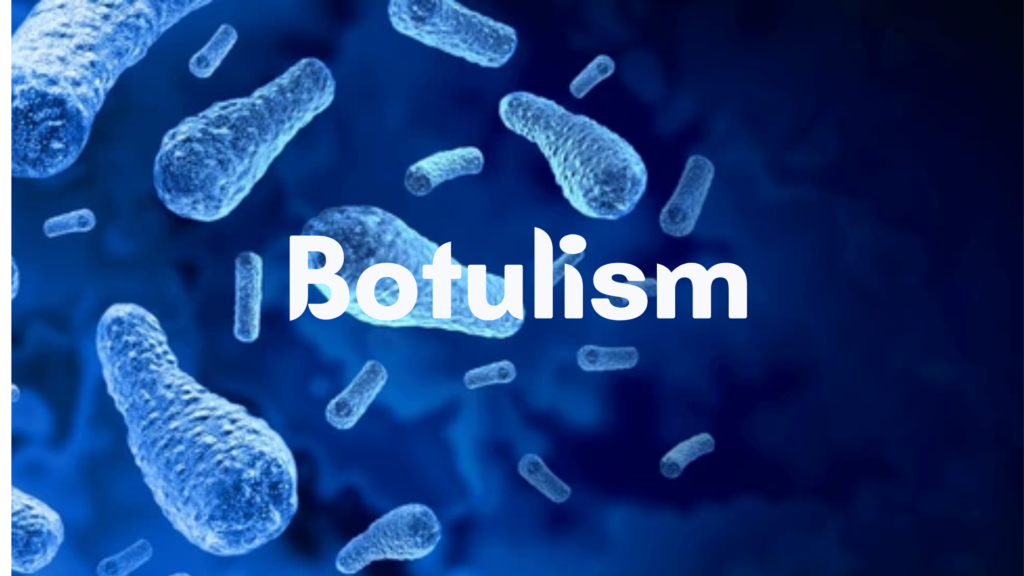☠️ Botulism
Botulism is a rare but serious illness caused by a neurotoxin produced by the bacterium Clostridium botulinum. It can lead to muscle paralysis and potentially life-threatening breathing difficulties.
🧬 Causes & Types:
- Foodborne Botulism:
- Eating improperly canned, preserved, or fermented foods
- Toxin is ingested and absorbed from the gut
- Wound Botulism:
- Infection in a wound where the bacteria produce toxin
- Often linked to injection drug use
- Infant Botulism:
- Ingestion of spores (e.g., from honey) that grow in a baby’s intestine
- Most common form in the U.S.
- Inhalation Botulism (rare):
- Possible via aerosolized toxin in bioterrorism scenarios
🩺 Symptoms:
Common to all forms:
- Drooping eyelids
- Blurred or double vision
- Slurred speech
- Difficulty swallowing
- Muscle weakness (starting in face and spreading downward)
- Paralysis of breathing muscles (may require a ventilator)
In infants:
- Constipation
- Poor feeding
- Weak cry
- Floppy muscles (“floppy baby syndrome”)
🔍 Diagnosis:
- Clinical examination based on symptoms
- Toxin detection in blood, stool, or suspected food
- Electromyography (EMG) to detect nerve problems
💊 Treatment:
- Antitoxin: Stops further damage but doesn’t reverse existing paralysis
- Hospitalization: Often in ICU
- Respiratory support (ventilation if needed)
- IV fluids and feeding support
- Wound care and antibiotics for wound botulism (but not infant form)
⚠️ Complications:
- Respiratory failure
- Long-term weakness or fatigue
- Death if untreated (but mortality is greatly reduced with prompt care)
🧼 Prevention:
- Proper canning of foods
- Avoid giving honey to infants under 12 months
- Safe wound care and avoiding injection drug use
